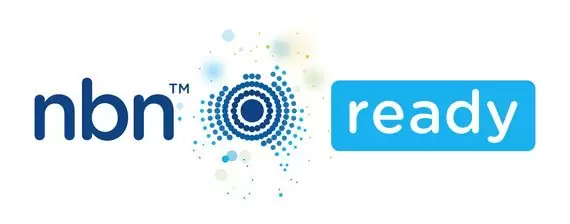Enhancing communication with VoIP phone systems for schools
Effective communication is pivotal in educational settings, serving as the backbone for collaboration among staff, students, and parents. With the increasing complexity of school environments, traditional communication systems often fall short of meeting the diverse needs of modern educational institutions. This is where VoIP phone systems for schools emerge as a transformative solution, offering a comprehensive approach to school communication.
Traditional phone systems are often limited in functionality and incur high costs due to maintenance and long-distance charges. In contrast, VoIP systems provide flexibility and scalability, allowing schools to adjust their communication needs as they grow. Plus, using VoIP can reduce telecommunication budgets by up to 75% compared to traditional systems, ensuring you can reallocate funds to more important requirements.
Key benefits of VoIP phone systems for schools
1. Cost savings
The financial implications of switching to VoIP are noteworthy. Traditional phone systems often require costly hardware installations and ongoing maintenance fees. In contrast, VoIP solutions typically involve lower upfront costs due to their cloud-based nature. Schools can benefit from free setup and feature-rich systems, which are often part of the service package offered by many VoIP providers.
2. Long-term financial benefits
Beyond initial savings, the long-term financial benefits of adopting VoIP include reduced operational costs and increased efficiency. Schools can allocate funds saved from telecommunication expenses towards educational resources or programmes.
3. Advanced communication features relevant to schools
-
Call recording and monitoring: This feature allows schools to maintain records of important conversations for accountability and training purposes.
-
Voicemail-to-email functionality: Educators can receive voicemails directly in their email inboxes, streamlining communication and making conversations among students and staff more efficient.
-
Auto attendants and call routing: These features ensure that calls are directed to the appropriate departments or personnel without delay.
Safety and emergency features
Safety is paramount in educational settings. VoIP systems enhance safety protocols through streamlined emergency broadcasts where immediate alerts can be sent out to staff during emergencies. Additionally, an address book feature offers a centralised address book which greatly simplifies contacting key personnel during critical situations.
Benefits of VoIP for school administration
Implementing a VoIP system facilitates improved communication among staff, parents, and students. The integration of various communication tools—such as video conferencing and instant messaging—streamlines administrative processes.
Unified communication tools also enable seamless collaboration among staff members, enhancing productivity. Effective communication tools can improve teacher satisfaction and retention rates, ensuring that schools continue to employ the best educators.
VoIP phone systems for schools allow administrators to manage calls from various devices, providing the flexibility that is essential in today’s dynamic educational environments. This capability ensures that important communications are never missed.
If you’re planning on transitioning from traditional phone systems to VoIP then careful planning is essential. The steps to ensure a successful transition and integration include the following:
-
Assessment: Evaluate current communication needs and infrastructure.
-
Choosing a Provider: Research potential providers based on features, pricing, and support options.
-
Installation: Work with the chosen provider for a smooth installation process.
Considerations for choosing the right VoIP provider
Selecting a suitable VoIP phone systems provider involves examining features such as scalability, customer support availability, and integration capabilities with existing school systems.
Importance of training staff on new systems
Training is crucial for ensuring staff members are comfortable using new technologies. Effective training programs can lead to higher adoption rates and better utilisation of VoIP features.
Future-proofing school communication
VoIP technology is adaptable to future advancements in education technology. As schools increasingly integrate digital tools into their curricula, having a robust communication system like VoIP will be essential for supporting these initiatives.
As educational technologies evolve—such as AI-driven learning platforms or virtual classrooms—VoIP may even be able to integrate with these tools seamlessly. This adaptability ensures that schools remain at the forefront of educational innovation and adapt to future technological advancement easily.
Choosing VoIP phone system for schools—a vital choice for improved communication
Adopting a VoIP phone system represents a significant step forward in enhancing communication within schools. The many benefits—ranging from cost savings to advanced safety features—make it an essential choice for modern educational institutions looking to improve their communication infrastructure. By investing in VoIP technology to integrate school phone systems, schools not only enhance their operational efficiency but also create a safer and more connected environment for students and staff alike.
As education continues to evolve in the digital age, embracing innovative solutions like VoIP will be crucial for fostering effective communication across all levels of the educational landscape
FAQs
1. How do VoIP phone systems for schools improve communication between teachers and parents?
VoIP enhances communication between teachers and parents through features like instant messaging, video conferencing, and voicemail-to-email capabilities. These tools allow educators to quickly reach out to parents for updates, meetings, or concerns, fostering a more collaborative relationship. Additionally, automated notifications can keep parents informed about important announcements or events.
2. Are VoIP phone systems secure for use in schools?
Yes, VoIP phone systems can be secure when properly configured. Most providers offer encryption protocols to protect voice data during transmission. Schools should also implement strong passwords, regular software updates, and network security measures (like firewalls) to safeguard sensitive information and ensure compliance with privacy regulations.
3. What kind of internet bandwidth is required for VoIP in schools?
The bandwidth required for VoIP depends on the number of concurrent calls and the quality of the audio desired. Generally, a standard VoIP call requires about 100 kbps (kilobits per second) per call. Schools should assess their current internet capacity and consider upgrading their bandwidth to accommodate peak usage times without compromising call quality.



